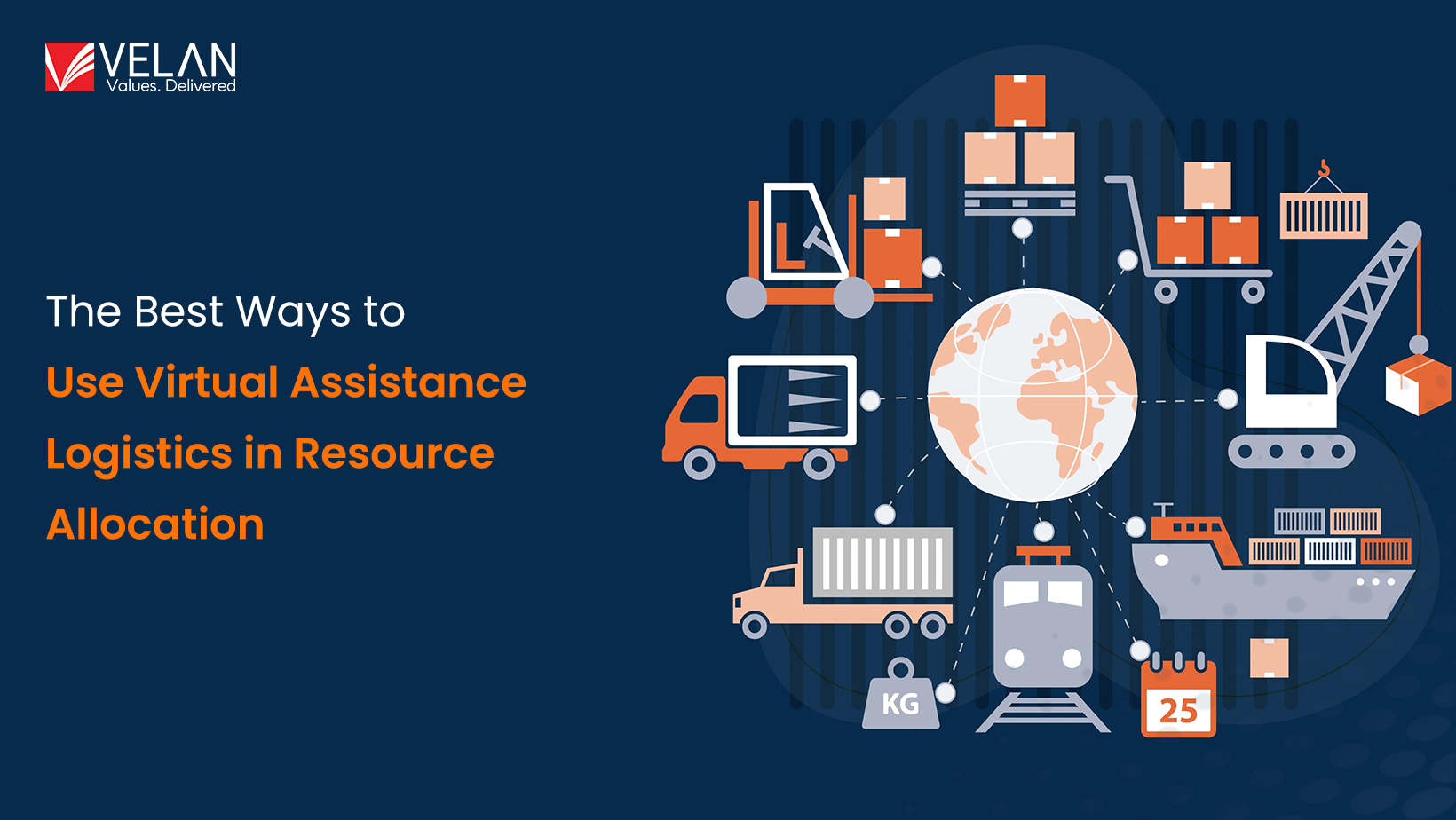Companies are constantly on the lookout for new ways to streamline processes, cut down on costs, and be more efficient in the highly dynamic area of logistics and supply chain management. The virtual support logistics method of incorporating VA into the resource allocation strategy is one example that is being constantly used. The process of managing supply chains is being revolutionized by virtual assistants, particularly those who specialize in logistics, who are ensuring that the process is more cost-effective, efficient, and rapid.
A Logistics Virtual Assistant (VA) is a professional who operates remotely and provides assistance with logistics and supply chain operations. They are the ones who help companies with the issues that have to be solved, like the movement, storage, and distribution of goods, thus making it possible for the effective and efficient operation of processes. Logistics VAs are hired by companies to ramp up the communication, tools, and production mainly through the latest technology available and specialized abilities.
This article will not only inform about the major duties that logistics virtual assistants are responsible for but also suggest useful tips for successful resource allocation. Learn about the advantages and disadvantages of virtual assistance logistics that significantly include automating stock management, planning for the best delivery routes, and providing a powerful solutions-based analysis.
Logistics Virtual Assistants: Key Job Responsibilities
1. Improved Inventory Management
Virtual assistants can be used to monitor the inventory to ensure accuracy, timely replenishment, and to decrease the counts problem. It is advisable in logistics management that AI be used to get real-time updates, and for that purpose, technologically inclined systems are essential. This approach optimizes the storage and distribution processes, thereby improving logistics in supply chain management.
2. Optimizing Delivery Routes
The most efficient routes can be recommended by virtual assistance logistics tools, which can analyze traffic data, weather conditions, and delivery schedules. Ensuring deliveries are on time and cost-efficient is crucial when managing transportation in the supply chain, and optimizing these processes aids in improving sustainability by lowering fuel consumption.
Ready to optimize your resources with virtual assistance logistics? Talk to our experts today and streamline your operations!
3. Data Analysis and Predictive Analytics
A virtual assistant can assist in tracking shifts in the market, demand, and other possible changes using advanced data analytic techniques. Such changes can further be managed proactively through better configurations on resource allotment by logistics specialists so that there is a balance of supply and demand.
4. Administrative Task Automation
Repetitive tasks such as reporting and order scheduling take important time from employees. Virtual assistants can easily take over these tasks, improving the time logistics personnel spend on important steps in the planning process. Such a takeover increases the efficiency as well as the effectiveness of the logistical supply chain processes.
5. Improvement of Coordination and Communication
Virtual assistants are now capable of aiding communication and information transfer between parties and departments easily. As such, they are capable of making sure that every logistics participant in supply chain management has the right information at the right time by organizing meetings, sending notifications and updates, and even real-time buildout tracking.
6. Managing Expenses
With virtual assistance, processes can be automated, and thus, resources can be optimized as well, resulting in lower expenses. By utilizing accurate predictions and proper routing, businesses can eliminate needless spending, which will allow them to allocate resources more efficiently.
In conclusion
Businesses wishing to polish their strategy in logistics and supply chain management are advised to consider integrating the advanced resource allocation approach that employs virtual assistance in logistics services. Virtual assistants enable logistics management specialists to more effectively and efficiently navigate complex supply chains by improving decision-making, reducing costs, and augmenting efficiency. In today’s dynamic market landscape, businesses must not only embrace these technologies to gain a competitive advantage but also to ensure their success.
FAQs
How can a logistics VA improve resource allocation?
A logistics VA boosts productivity and reduces waste by optimizing delivery routes, automating routine tasks, and providing contextual data, which helps direct resources appropriately.
What are the necessary credentials for a logistics virtual assistant?
Important skills include the ability to effectively execute inventory and schedule tasks, solid organizational capabilities, excellent communication skills, data interpretation, and knowledge of the logistics software systems.
In what ways do virtual assistants optimize the delivery routes?
Providing the most optimal suggested routes and the least expensive routes is possible with the use of advanced logistics programs that factor in traffic information, climate, and current time along with other delivery factors.
Can a logistics VA handle logistics internationally?
There are quite a few virtual assistants that are knowledgeable in the consolidation of international suppliers and carriers, as well as coordinating international logistics, which encompasses customs paperwork.
